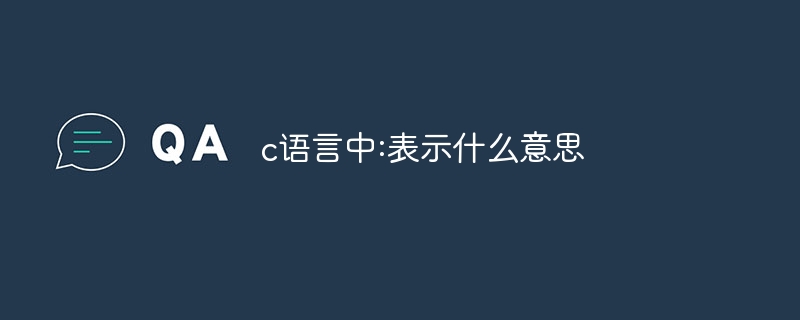Home >Backend Development >C#.Net Tutorial >In C language: what does it mean?
In C language: what does it mean?
- 下次还敢Original
- 2024-05-02 16:42:16944browse
In C language, the colon is used in the following situations: to label statements for jumping using goto statements. As part of the ternary operator, returns one of two values based on a conditional expression. Represents the scope of case and default statements in a switch-case statement. Separate array elements during array initialization. Separate arguments when defining function macros.

In C language, the colon (:) means the following:
1. Tag:
Colon can be used to label a statement so that a goto statement can be used to jump to it. For example:
<code class="c">start:
printf("Hello world!\n");</code>
2. Ternary operator:
The colon is part of the ternary operator. The ternary operator is used to return one of two values based on a conditional expression. The syntax is as follows:
<code class="c">condition ? value1 : value2</code>
For example:
<code class="c">int x = (a > b) ? a : b;</code>
3. Range:
In switch-case statements, colons are used to represent case and default statements range. For example:
<code class="c">switch (x) {
case 1:
printf("x is 1\n");
break;
case 2:
printf("x is 2\n");
break;
default:
printf("x is not 1 or 2\n");
}</code>
4. Initializing the array:
When initializing the array, colons are used to separate array elements. For example:
<code class="c">int arr[] = {1, 2, 3, 4, 5};</code>
5. Function macro parameter list:
When defining a function macro, colons are used to separate parameters. For example:
<code class="c">#define MAX(a, b) ((a) > (b) ? (a) : (b))</code>
The above is the detailed content of In C language: what does it mean?. For more information, please follow other related articles on the PHP Chinese website!

